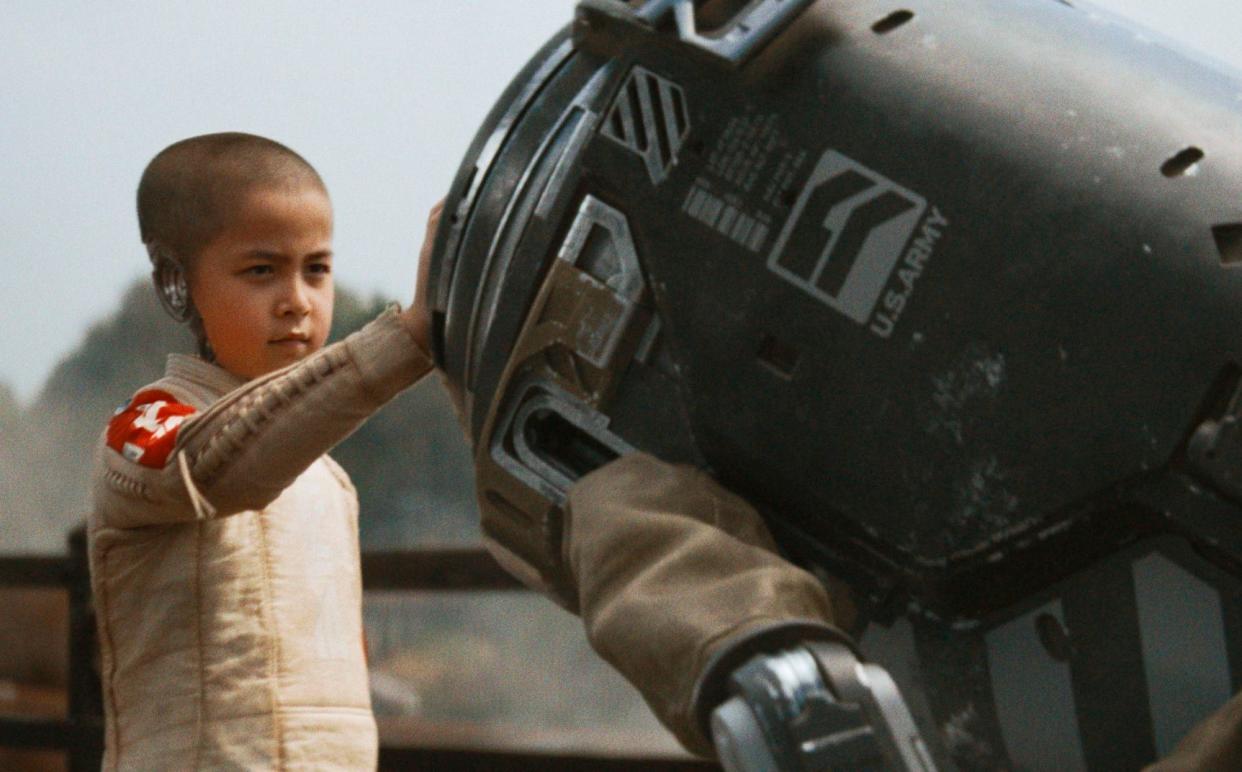The Creator, review: humans are the bad guys in this stunningly realised AI epic

In 2010, a young British filmmaker called Gareth Edwards took on the studios at their own game and won. His debut feature, a gratifyingly grungy science-fiction parable called Monsters, was shot guerrilla-style around central America, and contained 250 visual effects shots (including some glimpses of giant tentacled aliens) which Edwards created from scratch on his laptop.
The results felt like Doctor Who via Werner Herzog, and seemed to herald a new age of science fiction in which close-to-blockbuster results could be obtained on independent budgets. And how did Hollywood respond? By lobbing the man into a couple of franchises, ASAP.
After a (respectable) decade in the trenches with Godzilla and Star Wars, however, Edwards has been passed $80 million to craft another original sci-fi tale – and happily, this one is yet more entertaining and conceptually ambitious than his first. It’s also topical in both felicitous and awkward ways, since it concerns an impending, globe-swamping conflict between humanity and artificial intelligence – though the good guys, here at least, aren’t necessarily on Team Flesh and Blood.
The plot slots cosily into the Space Dad micro-genre recently brought into vogue by Interstellar, Ad Astra and First Man, in which paternal ties are movingly tested by the coldness and vastness of the cosmic beyond. Here the heartstring-tugging bond is the one between a gruff US military type played by John David Washington and an android or ‘simulant’ child (Madeleine Yuna Voyles), manufactured by the mysterious inventor-deity of this synthetic race as a weapon of some sort, apparently capable of ending the war at a stroke.
The pair’s hide-and-seek quest – remain below radar, while searching for Washington’s missing wife (Gemma Chan) – is thrilling, affecting stuff, if perhaps not quite as existentially skewering as those forerunners listed above. (Hans Zimmer’s oddly conventional score doesn’t help on that front.)
But what sets it apart is Edwards’ extraordinarily skilful transferring of the Monsters aesthetic to a sprawlingly large (though still relatively leanly budgeted) canvas. The film was shot all over the Far East, largely in steaming jungles and along hazy shorelines which recall both Herzog and the hallucinatory mayhem of Apocalypse Now. And in every shot, the mix of gritty local colour and artful digital augmentations is riveting: you’re always vaguely aware that what you’re looking at can’t all be real, but the line which splits reality from fantasy is impossible to spot.
With the exception of Denis Villeneuve’s Dune, I don’t think I’ve sunk so pleasurably into a visual effects-driven world like this in years: it’s as if Edwards is picking up directly from the early noughties, and the past decade and a half of watching grey and brown pixels in a tumble dryer never happened. Every prop is chunkily convincing in the actors’ hands; every louring megalopolitan skyline shot as if it’s actually right in front of you, rather than confected inside a hard disk.
Blade Runner and Spielberg’s War of the Worlds, as well as the Vietnam movie canon, are all obvious touchstones. (During the battle scenes, people actually die: there’s no prissiness about collateral damage.) But Edwards also cleverly draws on classic Japanese anime – most often 1988’s Akira, with its city-centre nuclear blast and eerie nursery-like holding pen for psychic tots. In an almost throwaway scene, we watch the simulant kid watching a cartoon about the battle she’s now an instrumental part of, drawn in the style of Battle of the Planets and Mobile Suit Gundam: war repackaged as a distraction from itself.
On the TV screen glints a jolly version of a trillion-dollar US gunship called NOMAD, while the real thing does likewise in the skies above. Throughout, this airborne colossus is a deliciously sinister presence, with its straight, slender wings and circular central array that together suggest a God cracking His knuckles before getting started on the end of the world. The Creator reverberates with that sort of doomy relish: it’s been too long since a good time at the cinema felt this serious, let alone vice versa.
12A cert, 133 mins. In cinemas from September 28

 Yahoo Movies
Yahoo Movies 
